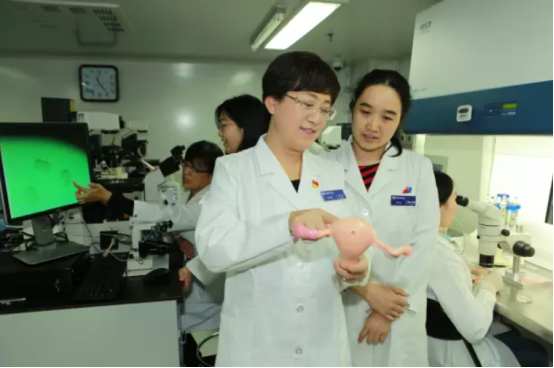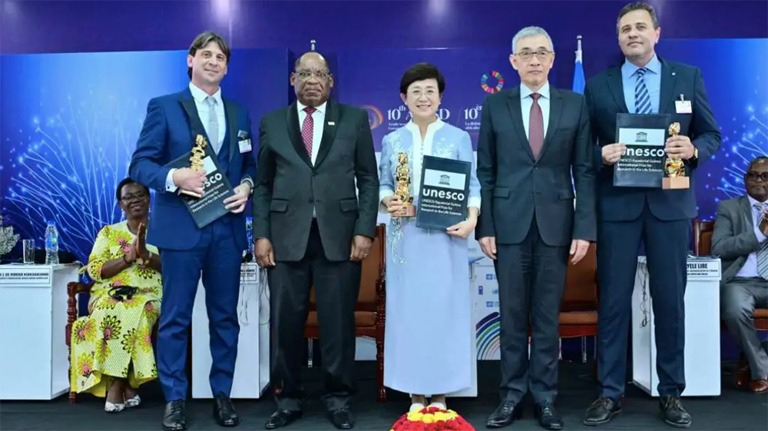The recipients of the UNESCO–Equatorial Guinea International Prize for Research in the Life Sciences were announced on April 23 at a ceremony held in Addis Ababa, Ethiopia, on the margins of the tenth Africa Regional Forum on Sustainable Development.
Mohamed Ali Farag, a professor at the Faculty of Pharmacy of Cairo University from Egypt, Qiao Jie, vice-president of the CAST as well as executive vice-president of Peking University and director of Peking University Health Science Center from China, and Triantafyllos Stylianopoulos, a professor from the Department of Mechanical and Manufacturing Engineering at the University of Cyprus from Greece, were honored for their outstanding contributions to life sciences.

Qiao Jie, executive vice-president of Peking University and director of Peking University Health Science Center.
Photo credit: Official website of UNESCO
A specialist in reproductive medicine, Qiao has expanded the grasp of the mechanisms behind fertility and infertility. She has studied the detailed genetic processes in humans that lead from germ cell to reproductive cell then to embryo and was the first person to publish maps of these processes.
She has also developed innovative techniques for preimplantation genetic diagnosis, a procedure that can dramatically improve the success rate of in vitro fertilization (IVF) and help avoid the transmission of genetic diseases through IVF.
One of her most revolutionary contributions to improving women’s reproductive health has been her discovery of the role that the microbiome in the gut plays in female reproductive disorders. The human gut hosts bacteria, viruses, fungi, and other micro-organisms which are collectively known as the microbiome. In a healthy gut, there is a balance between beneficial and harmful micro-organisms. This balance is essential for maintaining a healthy immune system. Qiao’s discovery has fostered the novel concept of the “gut-based intervention for reproductive diseases”. By linking infertility to a patient’s unique microbiome, her work has propelled precision medicine into the realm of reproductive health.
Beyond these endeavors, Qiao is committed to sharing scientific data by establishing publicly shared databases. In 2021, she was the lead author of a Lancet Commission report on 70 years of women’s reproductive, maternal, newborn, child, and adolescent health in China, along with over 30 other domestic and international collaborators, which is available in open access.

Triantafyllos Stylianopoulos, a professor from the Department of Mechanical and Manufacturing Engineering at the University of Cyprus; Clemente Engonga Nguema Onguene, vice-premier of the Republic of Equatorial Guinea; Qiao Jie, vice-president of the CAST as well as executive vice-president of Peking University and director of Peking University Health Science Center; Qu Xing, deputy director-general of UNESCO; and Mohamed Ali Farag, a professor at the Faculty of Pharmacy of Cairo University, attended an award ceremony on April 23 in Addis Ababa, Ethiopia.
Qiao Jie was honored the UNESCO–Equatorial Guinea International Prize for Research in the Life Sciences at the ceremony.
Photo credit: Peking University Health Science Center
The Prize, funded by the Republic of Equatorial Guinea, is given annually to a maximum of three laureates. They receive a monetary award of USD 350,000 divided equally among laureates, to help further their research, together with a certificate and the “Integracion Tribal” statuette by Equatorial Guinean artist Leandro Mbomio.
The Prize was established by UNESCO’s Executive Board, to support the achievement of the 2030 Agenda for Sustainable Development as well as UNESCO’s global priorities.
Source: Official website of UNESCO